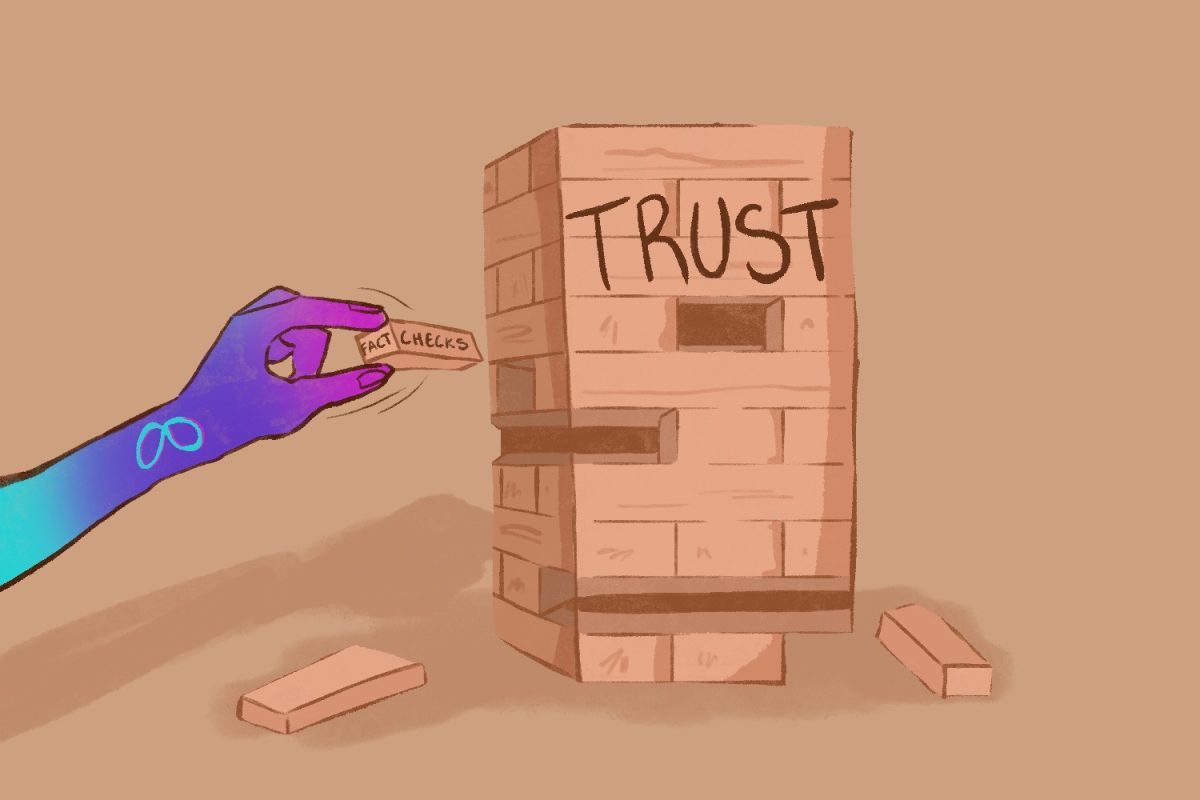The internet is always right.
Most people have heard this phrase tossed around before in their lives. The speaker might have jokingly tossed this remark around, but a certain danger arises when the audience actually believes this statement.
When you’re on the internet, you’re on a device that connects you to virtually every other device on the globe; this becomes your new reality. There are constantly new things to watch on the internet, meaning the information flow, whether real or fake, never stops. As a result, people are turning to the media they consume.
Algorithms are designed so that apps take your past digital footprint and filter out content for you to read that aligns with your previous history. Social media platforms such as Tik Tok, Instagram, or Youtube home pages only show you things that you’ll agree with.
The point of algorithms is to keep you engaged on the app, and the marketers keep you addicted. As a result, you’ve fallen into an echo chamber of your own beliefs on social media when you’ve constantly been spoonfed the same information.
Many Americans utilize these platforms as their sources, believing this information because of confirmation bias, whether real or not.
The spread of misinformation is incurable as the internet can’t be stopped, and we can’t limit an individual’s freedom of speech. However, we can address the problem to reduce the harmful effects since the digital age is here to stay.
We can attempt to teach the upcoming generations to be aware of these issues and be mindful of future information consumers.
This issue is as imperative as ever. In a recent survey from the University of Michigan’s children’s hospital, many kids have already arrived on the social media scene. Parents report that 49% of kids ages 10-12 report using social media. In this same survey, 32% of children aged 7-9 report using social media.
This new generation gets their information online since that’s where they chronically reside. Kids live in an internet culture that values humor and viral content over facts. They’re more likely to see viral but possibly false information because of how social media algorithms work.
In response, we must teach them how to read through the noise. We need to implement digital literacy classes from a young age to educate kids on mindful internet consumption.
If kids are taught how to navigate the internet properly, then they’d be able to find and evaluate information strategically. The incoming generations should learn how to evaluate sources to determine credibility, identify relevant videos, understand how wording can convey certain biases, and other essential skills that will ultimately help them distinguish fake information from factual information.
These skills should be implemented in the core curriculum, and kids should be required to participate in digital literacy classes beginning in elementary school. This way, kids can be well-equipped with skills to tackle the internet head-on before they jump into the depths of social media.
*This editorial reflects the views of the Scot Scoop Editorial Board and was written by Annabel Chia.
The Editorial Board voted 8 in agreement, 1 somewhat in agreement, and 3 refrained from voting.














